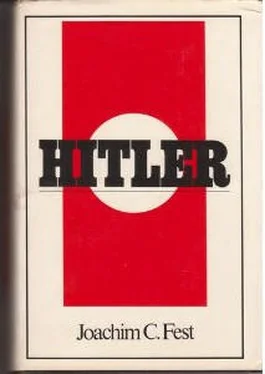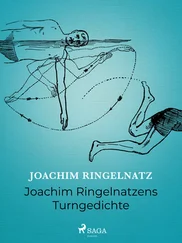Joachim Fest - Hitler
Здесь есть возможность читать онлайн «Joachim Fest - Hitler» весь текст электронной книги совершенно бесплатно (целиком полную версию без сокращений). В некоторых случаях можно слушать аудио, скачать через торрент в формате fb2 и присутствует краткое содержание. Город: New York, Год выпуска: 1974, ISBN: 1974, Издательство: A Harvest Book, Жанр: Биографии и Мемуары, на английском языке. Описание произведения, (предисловие) а так же отзывы посетителей доступны на портале библиотеки ЛибКат.
- Название:Hitler
- Автор:
- Издательство:A Harvest Book
- Жанр:
- Год:1974
- Город:New York
- ISBN:9780151416509
- Рейтинг книги:5 / 5. Голосов: 1
-
Избранное:Добавить в избранное
- Отзывы:
-
Ваша оценка:
- 100
- 1
- 2
- 3
- 4
- 5
Hitler: краткое содержание, описание и аннотация
Предлагаем к чтению аннотацию, описание, краткое содержание или предисловие (зависит от того, что написал сам автор книги «Hitler»). Если вы не нашли необходимую информацию о книге — напишите в комментариях, мы постараемся отыскать её.
Index. Translated by Richard and Clara Winston. A Helen and Kurt Wolff Book
Hitler — читать онлайн бесплатно полную книгу (весь текст) целиком
Ниже представлен текст книги, разбитый по страницам. Система сохранения места последней прочитанной страницы, позволяет с удобством читать онлайн бесплатно книгу «Hitler», без необходимости каждый раз заново искать на чём Вы остановились. Поставьте закладку, и сможете в любой момент перейти на страницу, на которой закончили чтение.
Интервал:
Закладка:
His efforts to muddy the waters were favored by the fact that he came from across the border. Like many of the revolutionaries and conquerors of history, from Alexander to Napoleon to Stalin, he was a foreigner among his countrymen. There is surely a psychological link between this sense of being an outsider and the readiness to employ a whole nation as material for wild and expansive projects, even to the point of destroying the nation. At the turning point of the war, during one of the bloody battles of attrition, when his attention was called to the tremendous losses among newly commissioned officers, he replied with surprised incomprehension: “But that’s what the young men are there for.”
But foreignness did not sufficiently conceal him. His feeling for order, rules, and respectability was always at variance with his rather unsavory family history, and evidently he never lost a sense of the distance between his origins and his claims on the world. His own past always stirred his anxieties. In 1930, when rumors arose that his enemies were preparing to throw light on his family background, Hitler appeared very upset: “These people must not be allowed to find out who I am. They must not know where I come from and who my family is.”
On both his father’s and his mother’s side, his family came from a remote and poverty-stricken area in the Dual Monarchy, the Waldviertel between the Danube and the Bohemian border. A wholly peasant population, with involved kinship ties resulting from generations of inbreeding, occupied the villages whose names repeatedly recur in Hitler’s ancestral history: Döllersheim, Strones, Weitra, Spital, Walterschlag. These are all small, scattered settlements in a rather wretched, heavily wooded landscape. The name Hitler, Hiedler, or Hitler is probably of Czech origin (Hidlar, Hidlarcek); it first crops up in one of its many variants in the 1430’s. Through the generations, however, it remained the name of small farmers; none of them broke out of the pre-existing social framework.
At House No. 13 in Strones, the home of Johann Trummelschlager, an unmarried servant girl by the name of Maria Anna Schicklgruber gave birth to a child on June 7, 1837. That same day the child was baptized Alois. In the registry of births in Dollersheim parish the space for the name of the child’s father was left blank. Nor was this changed five years latsr when the mother married the unemployed journeyman miller Johann Georg Hiedler. That same year she turned her son over to her husband’s brother, Johann Nepomuk Hitler, a Spital farmer—presumably because she thought she could not raise the child properly. At any rate the Hiedlers, the story has it, were so impoverished that “ultimately they did not even have a bed left and slept in a cattle trough.”
These two brothers are two of the presumptive fathers of Alois Schicklgruber. The third possibility, according to a rather wild story that nevertheless comes from one of Hitler’s closer associates, is a Graz Jew named Frankenberger in whose household Maria Anna Schicklgruber is said to have been working when she became pregnant. Such, at any rate, is the testimony of Hans Frank, for many years Hitler’s lawyer, later Governor General of Poland. In the course of his trial at Nuremberg Frank reported that in 1930 Hitler had received a letter from a son of his half-brother Alois. Possibly the intention of the letter was blackmail. It indulged in dark hints about “very odd circumstances in our family history.” Frank was assigned to look into the matter confidentially. He found some indications to support the idea that Frankenberger had been Hitler’s grandfather. The lack of hard evidence, however, makes this thesis appear exceedingly dubious—for all that we may also wonder what had prompted Frank at Nuremberg to ascribe a Jewish ancestor to Hitler. Recent researches have further shaken the credibility of his statement, so that the whole notion can scarcely stand serious investigation. In any case, its real significance is independent of its being true or false. What is psychologically of crucial importance is the fact that Frank’s findings forced Hitler to doubt his own descent. A renewed investigation undertaken in August, 1942, by the Gestapo, on orders from Heinrich Himmler, produced no tangible results. All the other theories about Hitler’s grandfather are also full of holes, although some ambitious combinational ingenuity has gone into the version that traces Alois Schicklgruber’s paternity “with a degree of probability bordering on absolute certainty” to Johann Nepomuk Hitler. 3Both arguments peter out in the obscurity of confused relationships marked by meanness, dullness, and rustic bigotry. The long and short of it is that Adolf Hitler did not know who his grandfather was.
Twenty-nine years later, after Maria Anna Schicklgruber had died of “consumption in consequence of thoracic dropsy” in Klein-Motten near Strones, and nineteen years after the death of her husband, the brother Johann Nepomuk Hitler appeared before parish priest Zahnschirm in Dollersheim, accompanied by three acquaintances. He asked for the legitimation of his “foster son,” the customs official Alois Schicklgruber, now nearly forty years of age. Not he himself but his deceased brother Johann Georg was the father, he said; Johann had avowed this, and his companions could witness the facts.
The parish priest allowed himself to be deceived or persuaded. In the old registry, under the entry of June 7, 1837, he altered the item “illegitimate” to “legitimate,” filled in the space for the name of the father as requested, and inserted a false marginal note: “The undersigned confirm that Georg Hitler, registered as the father, who is well known to the undersigned witnesses, admits to being the father of the child Alois as stated by the child’s mother, Anna Schicklgruber, and has requested the entry of his name in the present baptismal register. XXX Josef Romeder, witness; XXX Johann Breiteneder, witness; XXX Engelbert Paukh.” Since the three witnesses could not write, they signed with three crosses, and the priest put in their names. But he neglected to insert the date. His own signature was also missing, as> well as that of the (long-since deceased) parents. Though scarcely legal, the legitimation took effect: from January, 1877, on Alois Schicklgruber called himself Alois Hitler.
This rustic intrigue may very well have been set in motion by Alois himself. For he was an enterprising man who in the interval had made quite a career for himself. He may therefore have felt the need to provide himself with security and a firm footing by obtaining an “honorable” name. At the age of thirteen he had been apprenticed to a shoemaker in Vienna. But, by and by, he decided against being an artisan and instead entered the Austrian Finance Office. He advanced rapidly as a customs official and was ultimately promoted to the highest civil service rank open to a man of his education. He was fond of appearing as the representative of constituted authority on public occasions and made a point of being addressed by his correct title. One of his associates in the customs office called him “strict, precise, even pedantic,” and he himself told a relation who asked his advice about a son’s choice of occupation that working for the treasury demanded absolute obedience and sense of duty, and that it was not for “drinkers, borrowers, card players, and other people who go in for immoral conduct.” The photographs that he usually had made on the occasion of his promotions show a portly man with the wary face of an official. Underneath that official mask, bourgeois competence and bourgeois pleasure in public display can be discerned. He presents himself to the viewer with considerable dignity and complacency, his uniform aglitter with buttons.
Читать дальшеИнтервал:
Закладка:
Похожие книги на «Hitler»
Представляем Вашему вниманию похожие книги на «Hitler» списком для выбора. Мы отобрали схожую по названию и смыслу литературу в надежде предоставить читателям больше вариантов отыскать новые, интересные, ещё непрочитанные произведения.
Обсуждение, отзывы о книге «Hitler» и просто собственные мнения читателей. Оставьте ваши комментарии, напишите, что Вы думаете о произведении, его смысле или главных героях. Укажите что конкретно понравилось, а что нет, и почему Вы так считаете.





![Traudl Junge - Hitler's Last Secretary - A Firsthand Account of Life with Hitler [aka Until the Final Hour]](/books/416681/traudl-junge-hitler-s-last-secretary-a-firsthand-thumb.webp)






